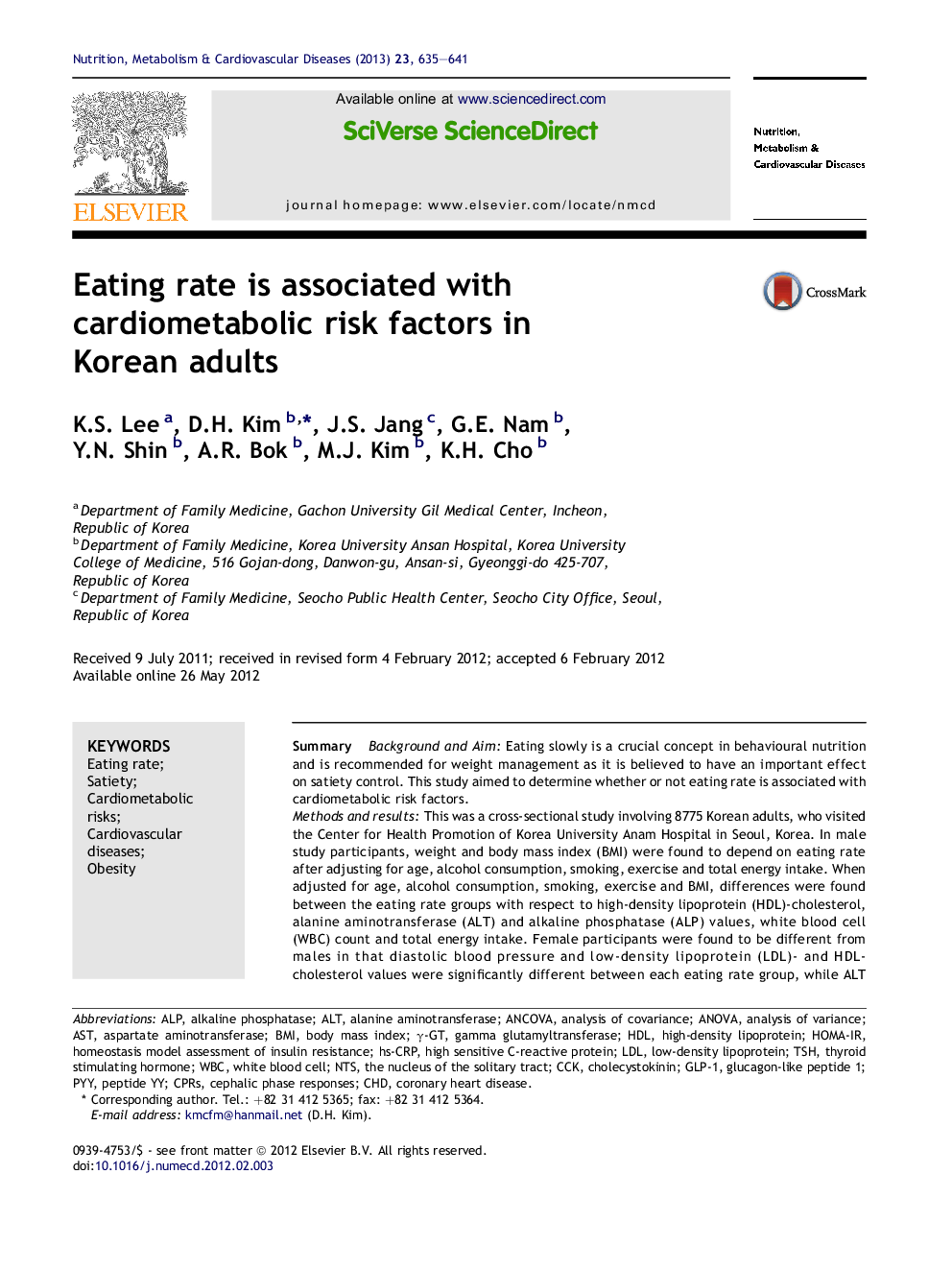| Article ID | Journal | Published Year | Pages | File Type |
|---|---|---|---|---|
| 3002369 | Nutrition, Metabolism and Cardiovascular Diseases | 2013 | 7 Pages |
SummaryBackground and AimEating slowly is a crucial concept in behavioural nutrition and is recommended for weight management as it is believed to have an important effect on satiety control. This study aimed to determine whether or not eating rate is associated with cardiometabolic risk factors.Methods and resultsThis was a cross-sectional study involving 8775 Korean adults, who visited the Center for Health Promotion of Korea University Anam Hospital in Seoul, Korea. In male study participants, weight and body mass index (BMI) were found to depend on eating rate after adjusting for age, alcohol consumption, smoking, exercise and total energy intake. When adjusted for age, alcohol consumption, smoking, exercise and BMI, differences were found between the eating rate groups with respect to high-density lipoprotein (HDL)-cholesterol, alanine aminotransferase (ALT) and alkaline phosphatase (ALP) values, white blood cell (WBC) count and total energy intake. Female participants were found to be different from males in that diastolic blood pressure and low-density lipoprotein (LDL)- and HDL-cholesterol values were significantly different between each eating rate group, while ALT and ALP values, WBC count and total energy intake were not. Compared with the slow eating rate group (>15 min), the fastest eating rate group (<5 min) had significantly increased odds ratios for cardiometabolic risk factors such as high glucose and low HDL-cholesterol levels in males, even after adjusting for BMI.ConclusionFast eating rates are associated with obesity and other cardiometabolic risk factors, particularly in men. Thus, eating slowly is recommended for weight reduction and to decrease cardiovascular risk factors.
